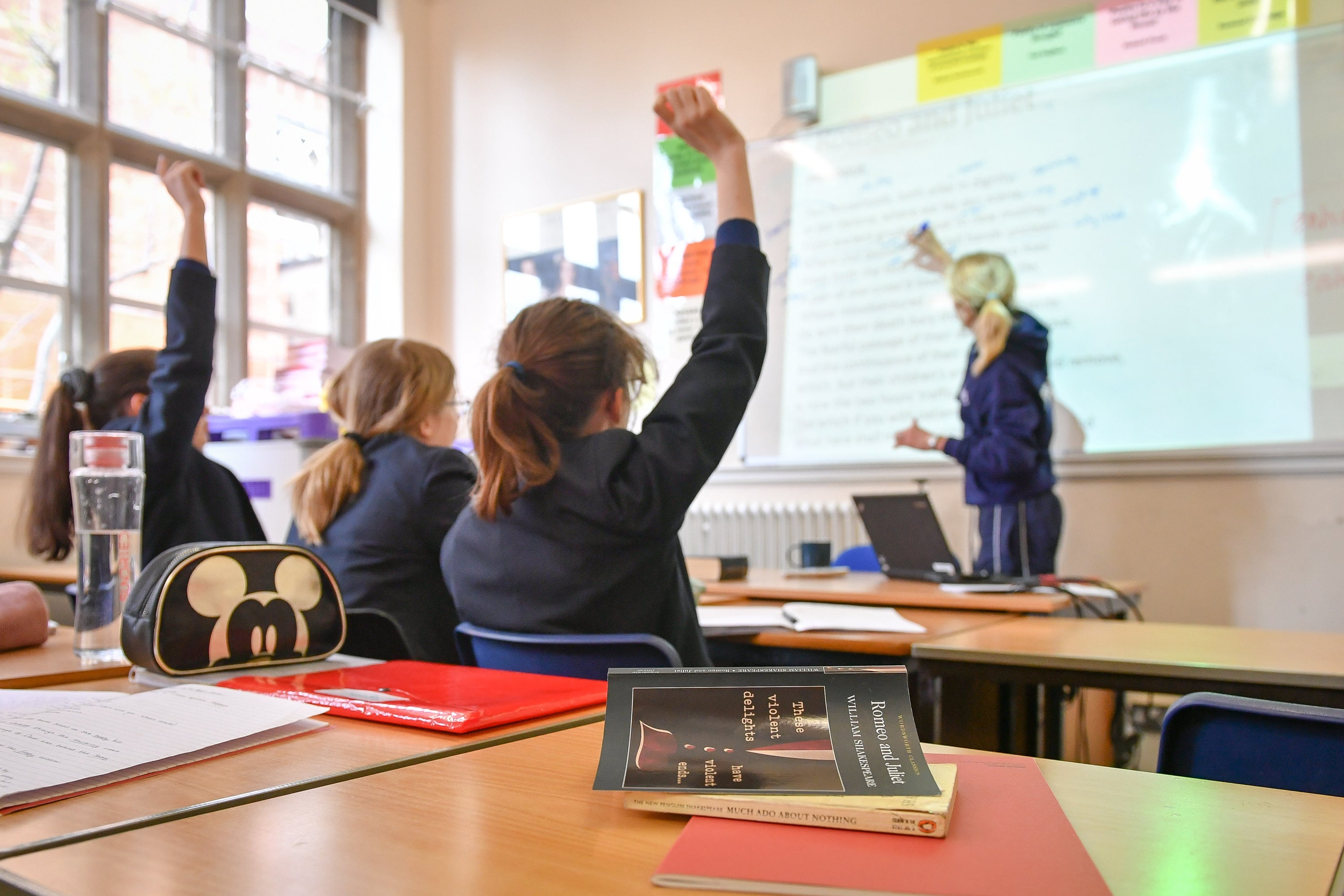Ignore Ofsted, says social mobility commissioner
Katharine Birbalsingh says school leaders must show bravery and not fear being disliked.

Headteachers should ignore Ofsted and “put the blinkers on” about their advice, the chair of the Social Mobility Commission has said.
Social mobility tsar Katharine Birbalsingh told heads at the Association of School and College Leaders (ASCL) that she did not think Ofsted was “necessarily, as an idea, a force for good”.
“Too many of us understandably as leaders are constantly worried about what Ofsted is asking for. And you must try and just put the blinkers on and ignore it and just do what is right for your children and do what is right for your school,” she said.
Ms Birbalsingh said heads had to “fight” for what they thought was best for their schools.
You need to believe in what you're doing, you need to believe that you're doing it to make your children succeed
“Because otherwise, it’s not very inspirational to say to staff, ‘We’re doing what we’re doing because we’re moving from ‘good’ to ‘outstanding’, or ‘We’re doing what we’re doing because this is what Ofsted wants’,” she added.
“You need to believe in what you’re doing, you need to believe that you’re doing it to make your children succeed,” she said.
Ms Birbalsingh added that she thought under current chief inspector Amanda Spielman the inspectorate was better than it had ever been.
She said teachers should not assume that they could draw knowledge out of pupils rather than teaching them material directly, as this would benefit middle-class students.
“A more middle-class child can go home and will sit down at the dinner table with their parents and they will talk about the politics of the day, read the books that are on the shelves; mum and dad might take out the newspaper. They go to museums on the weekend and they go to the Maldives on holiday and so on – and they pick up knowledge from all over the place.
“But the more disadvantaged child does not,” Ms Birbalsingh said.
She added that pupils from poorer backgrounds who had not been explicitly taught material would see their middle-class peers answering questions and become demotivated.
“What (the child) doesn’t think at that moment is ‘Well, I must be from a different socio-economic background, so that’s why I couldn’t answer.’ What he thinks is, ‘Gosh, I’m dumb.’ And then he starts poking Dave and poking John and keeps misbehaving,” she said.
When you look out for all the small stuff, the big stuff just happens
“And then in the end that boy does not achieve, and the reason he didn’t achieve has nothing really to do with him. It has to do with the fact that his teacher was not teaching him, because he or she felt uncomfortable with that idea, because so often we’re told that this is sort of cheating as opposed to teaching.”
Ms Birbalsingh said that in a “more challenging school” she would “highly recommend” silent corridors, as corridors could be “horrible places where children get bullied, there’s lots of screaming”.
She added that her school, Michaela Community School in Brent, where she is founder and headteacher, worked “very hard with families to encourage them not to give them a smartphone… and if we genuinely want things to be fairer, and we want our disadvantaged children to be socially mobile, the best thing you can do for them is get them not to have a smartphone”.
Ms Birbalsingh said some Year 7 and 8 pupils at Michaela did not have phones at all while Year 11 pupils handed theirs in to the school to keep in a safe place in advance of their exams.
Asked about what services could be employed for a wider, system-level response to social mobility, she said: “It’s really important to think about what we are doing personally.
Don't be hurt if parents are upset with you or mean social media people - whoever it is that's upset with you. You've got to believe in the children
“It’s very easy to point elsewhere all the time and say ‘the cause is over there’… What we must always do is look inward and think, ‘Well, what am I doing? What’s in my grasp to change?'”
Ms Birbalsingh said that in schools “there’s too much of an argument around the things that do work” and that the commission was collecting evidence on these.
But she added: “When you look out for all the small stuff, the big stuff just happens.”
Ms Birbalsingh said leaders had to be “brave” and willing to be disliked, adding that they had to avoid sentimentality.
She said: “Don’t be hurt if parents are upset with you or mean social media people – whoever it is that’s upset with you. You’ve got to believe in the children.”
Bookmark popover
Removed from bookmarks